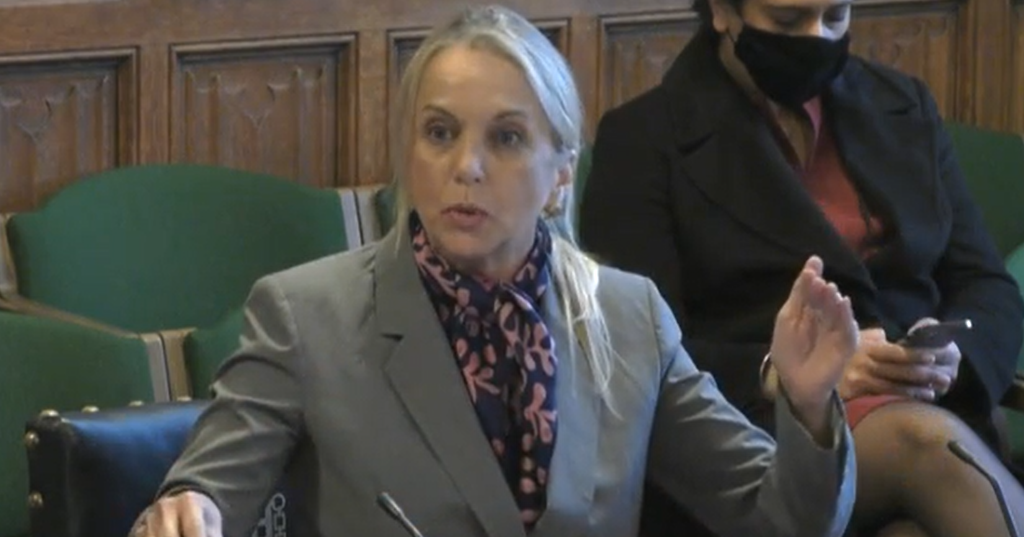MPs warned new protections for victims in rape trials are ‘not workable’

A new system to allow victims in rape trials to give pre-recorded evidence is becoming “unworkable” because lawyers are refusing to take on cases, MPs have been warned.
Evidence in modern-day slavery and serious sexual offence cases can now be taped months in advance of a criminal trial, to be replayed later in front of a jury.
The measure – under Section 28 of the Youth Justice and Criminal Evidence Act – is intended to help vulnerable witnesses avoid having to wait months or even years for a court showdown with the defendant.
However Kirsty Brimelow QC, vice chair of the Criminal Bar Association (CBA), warned MPs on Wednesday that barristers are reluctant to take on Section 28 cases because of the havoc wreaked on their ability to work effectively.
“Barristers are finding themselves unable to even eke a living by leaving themselves completely free to do these section 28 hearings. So they are not doing them,” she said.
“And if you don’t have practitioners doing them, they are not workable. That’s the bottom line, whatever the policy is.”
Section 28 was used for more than 1500 witnesses between September last year and August 2021. In September, a pilot at three courts, including Kingston, was rolled out to a further four courts, including Wood Green, Harrow, and Isleworth.
The pre-recorded evidence of a witness is counted as the first day of the trial, and commits a barristers to prosecuting or defending the case whenever it is heard in the future.
Ms Brimelow told MPs on the Home Affairs select committee, which is looking into the way rape and serious sexual offences are investigated and prosecuted, that lawyers are having to ask to be excused from trials to attend Section 28 recording sessions, and may find their requests blocked by judges.
She relayed recent reports from the West Midlands of six rape and sexual offences trials where no prosecutor could be found, with the CPS resorting to hiring an expensive QC in two of the cases to keep trials on track.
“What’s happening in the courts currently is barristers are refusing to do a case - prosecution and defence - which has a section 28 pre-recording as part of it,” she said.
“Although there is a protocol to deal with Section 28, it’s not managed actively by the judges, according to CBA members.”
The leading barrister also sounded a warning to MPs that Section 28 may not always be effective.
“The move towards ‘press play’ in order to provide evidence of the complainant to a jury isn’t necessarily a move which is one which is going to impact on a jury,” she said.
“It is anecdotal, it’s from being in the courts, doing these cases. But when there were much more options around choices for vulnerable witnesses, if they were able to come into court - albeit with special measures behind a screen - their evidence was far more tangible, you could feel it more in the courtroom, as opposed to having a screen and playing it.
“When a complainant has been waiting for years…to give evidence, and they find – or perhaps perceive – that they haven’t been able to get across what they wanted to get across because it’s a video played some months later, they may feel disappointed by that process.”
Announcing the further rollout of the measure in September, Justice Secretary Dominic Raab said: “Boosting support for victims is one of my top priorities so I’m keen that we use this technology to minimise stress for victims and ensure they can provide their best evidence.
“This is part of our plans to transform the response to crimes against women, better support victims and make sure cases are investigated fully and prosecuted robustly.”
Rachel Nicholas, Victim Support’s Head of Service in London, supported the move, saying it would “improve the court process for victims of abuse in London, especially at a time when the number of survivors of domestic abuse accessing Victim Support’s specialist, community-based services has reached peak levels.
“For a lot of victims, survivors and witnesses, giving evidence in court is a traumatic experience. It’s crucial that they know their rights under the Victims’ Code to apply for special measures to help further reduce the stress of attending court and move on with their lives. Rolling out this scheme more widely is a welcome step in the right direction.”
Read More
Treasury has not estimated scale of Bulb’s use of £1.7bn Government loan
Immigration minister on Channel deaths: ‘I feel a huge weight of responsibility’
Rape victims ‘lucky’ if their case gets to court within four years, MPs told

 Yahoo News
Yahoo News 
